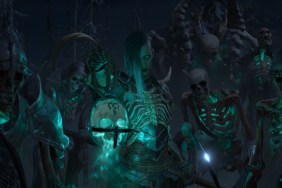A good cry.
Far Cry 4's Kyrat, the scenic destination of protagonist Ajay Ghale, is both a playground and a slanted microcosm of Tibetan culture, guerrilla warfare, and an authoritarian regime. It's a world where the capriciously sadistic Pagan Min has pushed the diminishing Golden Path resistance to the southern border, where the bounty of mountainous cliffsides come pre-installed with grappling…
-
Gorgeous open world of Kyrat
-
Solid shooting and sneaking mechanics
-
Fantastic cooperative experience
-
Ridiculous amount of activities
-
Auto-drive and new climbing mechanics
-
Riding elephants
-
Many collectibles, too many
-
Pagan Min is a strong personality, but don't see him often enough
-
Story-world has more style than substance
-
Kyrat culture feels too convenient
-
Iterative "Ubisoft" design











